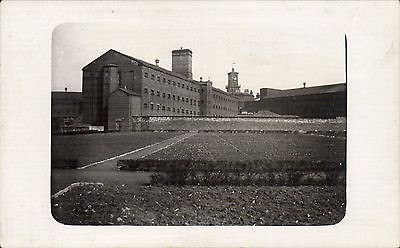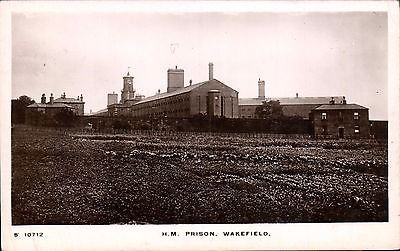In the late 1940s Wakefield Prison was not an easy option but was certainly not the worst the country provided. Indeed, in 1947 it was pioneering in both establishing a psychiatric unit, and in developing and testing the ‘open prison’ concept. Open prisons were an option for men who were seen as low risk, typically those convicted of white collar crimes such as fraud, and suitable candidates reaching the end of their sentence. Wakefield’s open prison was situated in a relatively rural setting. Inmates undertook agricultural work and slept in army huts, and doors and windows remained unlocked; prison officers did not carry any keys. It was generally regarded as a privilege to be sent to one an open prison and used by the authorities as a transitional step back into civilian life. By contrast, life in the main prison was almost completely regulated. Cell conditions were spartan, and inmates had no choice but to follow the almost granular direction of prison officers who controlled where they were, when they ate, who they could socialise with and when they could sleep.
Klaus Fuchs is perhaps the most famous of its former inmates, spending almost all of the 1950s within its walls. Prior to Fuchs incarceration in Wakefield, William Douglas Home was a notable incumbent. Home was court-martialled during WW2 for a refusal to lead what he considered a purposeless attack on a town heavily occupied by civilians. After a short time in Wormwood Scrubs he was sent to Wakefield, which he used as source experience for a play he later wrote: ‘Now Barabbas’.
Wakefield Prison




